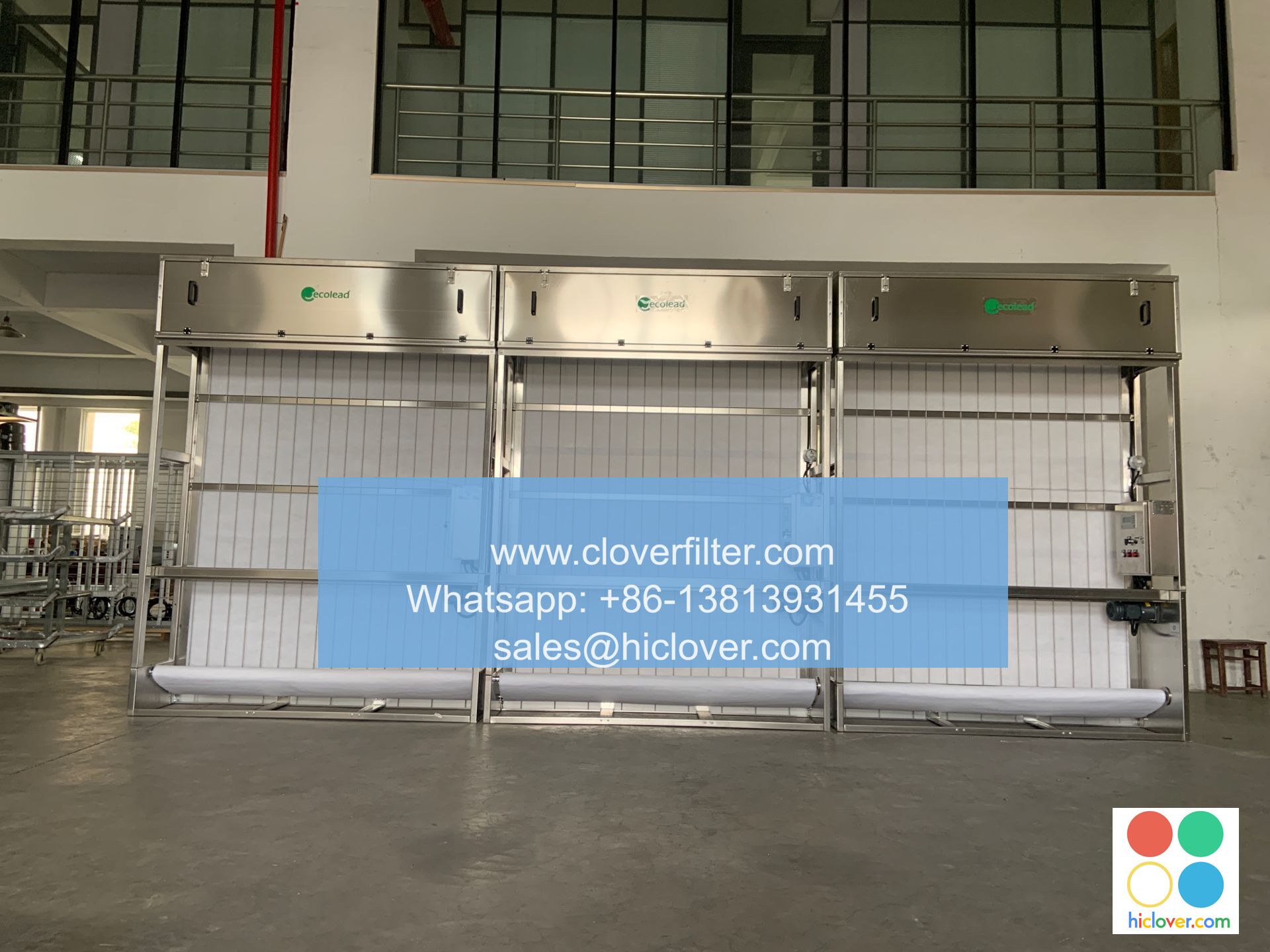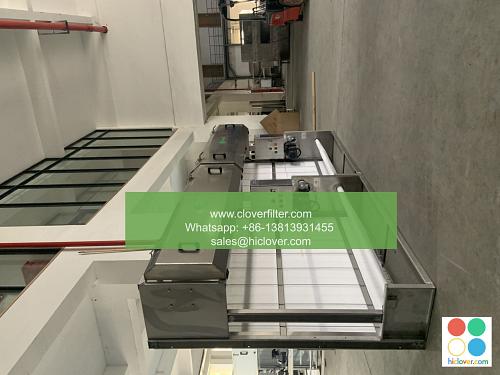Automatic Roll Air Filters: A Critical Component in Sanofi’s Vaccine Production

Sanofi, a leading global healthcare company, relies heavily on automatic roll air filters to ensure the quality and purity of their vaccine production. These filters play a crucial role in maintaining a cleanroom environment, which is essential for the production of vaccines and other pharmaceutical products. In this article, we will explore the importance of automatic roll air filters in vaccine production, their application areas, and the benefits they provide.
Introduction to Automatic Roll Air Filters
Automatic roll air filters, also known as rolling air filters or continuous air filters, are designed to provide a constant flow of clean air to the production area. They work by using a HEPA filter (High Efficiency Particulate Air) or ULPA filter (Ultra Low Penetration Air) to capture particles as small as 0.3 microns, including dust, bacteria, and viruses. The filters are typically installed in the air handling units (AHUs) of the cleanroom and are designed to be replaced automatically, minimizing downtime and ensuring continuous production.
Application Areas in Vaccine Production
Automatic roll air filters have several application areas in vaccine production, including:
- Cleanroom environments: They maintain a stable and controlled environment, which is essential for vaccine production.
- Production areas: They provide a consistent flow of clean air, reducing the risk of contamination and ensuring the quality of the vaccines.
- Fill and finish areas: They prevent particulate contamination during the filling and packaging process.
- Quality control laboratories: They maintain a clean and stable environment, ensuring accurate test results and quality control.
- Improved product quality: By maintaining a cleanroom environment, they reduce the risk of contamination and ensure the quality of the vaccines.
- Increased production efficiency: They minimize downtime and ensure continuous production, reducing the risk of delays and increasing overall efficiency.
- Reduced maintenance costs: They are designed to be replaced automatically, reducing the need for manual intervention and minimizing maintenance costs.
- Enhanced regulatory compliance: They help pharmaceutical companies, such as Sanofi, comply with GMP (Good Manufacturing Practice) regulations and ISO 14644 standards for cleanrooms.
- Energy efficiency: The use of automatic roll air filters can increase energy consumption, which can be a challenge for pharmaceutical companies looking to reduce their environmental impact.
- Filter replacement costs: The cost of replacing filters can be significant, and pharmaceutical companies are looking for ways to reduce these costs without compromising on quality.
- Advancements in technology: The development of new technologies, such as nanofiber filters and uv-c disinfection, is expected to further improve the efficiency and effectiveness of automatic roll air filters.
Benefits of Automatic Roll Air Filters
The use of automatic roll air filters in vaccine production provides several benefits, including:
Challenges and Future Developments
Despite the benefits of automatic roll air filters, there are still challenges to be addressed, such as:
In conclusion, automatic roll air filters are a critical component in Sanofi’s vaccine production, providing a cleanroom environment, improving product quality, and increasing production efficiency. Their application areas are diverse, and they provide several benefits, including improved product quality, increased production efficiency, and reduced maintenance costs. As the demand for vaccines continues to grow, the importance of automatic roll air filters will only continue to increase, driving future developments and innovations in this field.

